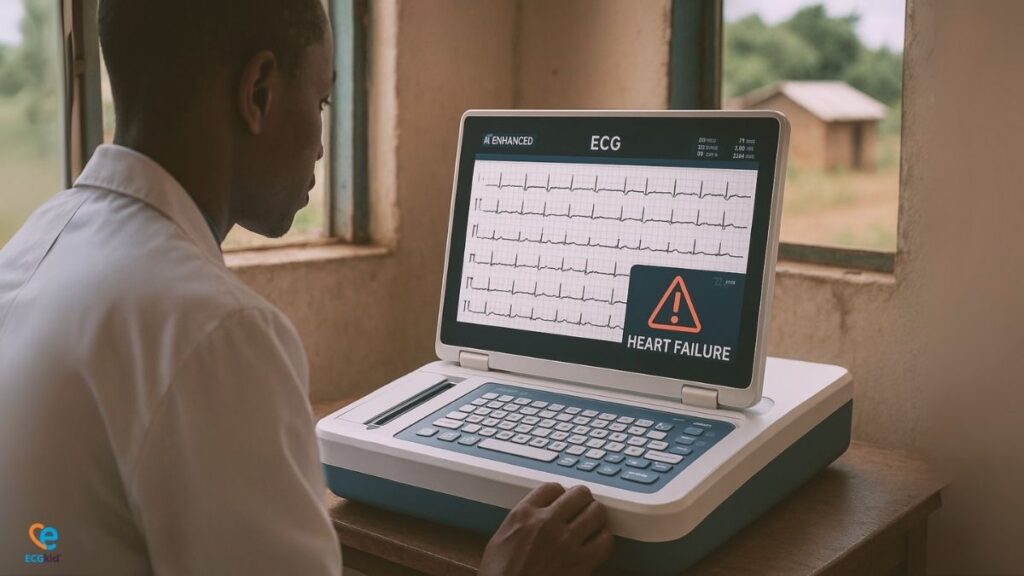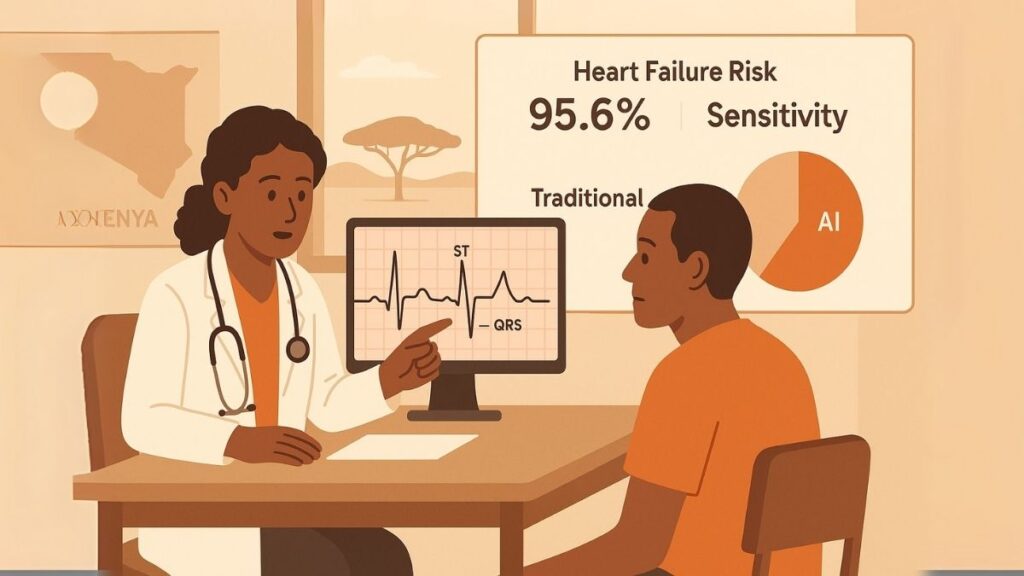public_health_notice
AI ECG Detects Heart Failure in Kenya with 95% Accuracy
AI-enhanced ECG algorithms detect heart failure with over 95% sensitivity in low-resource clinics
By Dr. Raj K | Published on June 22, 2025

Introduction
In the heart of rural Kenya, where access to cardiac specialists and imaging tools is limited, a quiet revolution is underway.
Patients visiting small outpatient clinics are now having their heart rhythms analyzed not just by clinicians — but by artificial intelligence. A simple 12-lead ECG, paired with a machine learning algorithm, is helping doctors detect hidden heart failure with remarkable accuracy — before symptoms even appear.
“I never imagined a test this simple could catch something so serious,” said one patient who learned he had an early-stage heart condition through this system.
With over 95% sensitivity, this AI-enhanced ECG model is not only transforming how heart failure is diagnosed — it’s redefining what’s possible in low-resource healthcare.
Why This Matters
Heart failure remains underdiagnosed in low- and middle-income countries, largely due to the limited access to echocardiography. By leveraging a 12-lead ECG and a validated AI model, clinicians in Kenya are now able to triage high-risk patients without needing costly imaging tools.
How It Works
- Standard ECG input: A typical 12-lead ECG is recorded
- AI model: Processes the waveform to identify ECG patterns linked to reduced ejection fraction
- Output: Generates a probability score for LVSD with high sensitivity

Study Highlights
- Sample: 1,280 adult patients screened at outpatient centers
- Sensitivity: 95.6%
- Specificity: ~69% (acceptable for population-level screening)
- ECG + AI reduced time to diagnosis by over 50%
Impact and Implications
The project demonstrates how cost-effective AI-augmented ECG interpretation can dramatically improve early heart failure diagnosis, especially in resource-constrained settings. It also opens new doors for mass cardiac screening across Africa and similar regions.
Conclusion
This Kenyan study represents a milestone in digital cardiology. It reinforces the clinical potential of AI in scaling diagnostic tools using devices that are already widely available—even in rural healthcare systems. With proper deployment, AI-enhanced ECG could become a global equalizer in heart failure care.
Research Reference
AI-enabled ECG algorithm performs well in early detection of heart failure in Kenya. European Society of Cardiology. ESC Press Release, May 2024.
Related ECG News
-
Wearable ECG Tech Spots Post-Surgery Heart Risks: Vivalink & Brigham Study Paves The Way For Safer Recoveries
July 15, 2025 -
NIT‑Rourkela’s New Atrial Lead System Enhances ECG Clarity for Arrhythmia Detection
July 13, 2025 -
AI-Enhanced ECG May Help Detect Cognitive Decline Years Before Symptoms Appear, AHA Study Finds
July 13, 2025